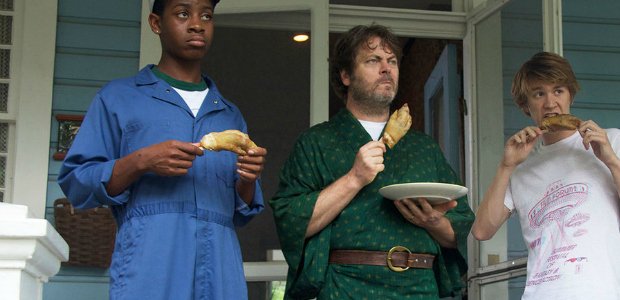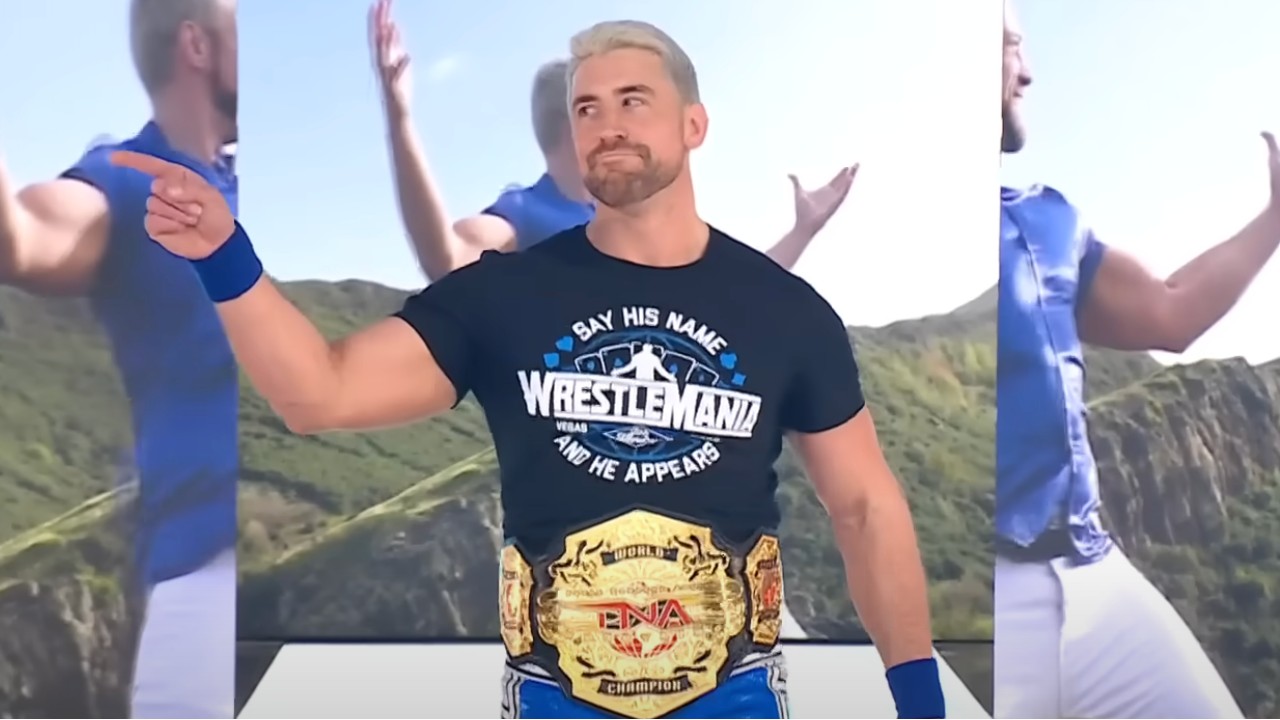Greg (Thomas Mann) is sitting in front of his computer, staring at an open word document with a single line of text. As he tells the audience, he can’t decide how to begin his story, which is one of teenage angst, relationships and taking that next step into adulthood. So, as one might expect from this kind of setup, he’s just going to jump right in. However, what proceeds is anything but expected.
Me, Earl & The Dying Girl was the darling of Sundance. Critics and crowds couldn’t stop talking about this heartfelt coming-of-age story about a young girl diagnosed with cancer and her unlikely friendship with the one guy afraid to stand out, all of it culminating in a massive bidding war for distribution, which Fox Searchlight won. The subject matter alone caused instant comparisons to The Fault In Our Stars, another adaptation of a young-adult novel. But linking Me and Earl to this genre seems insulting when you think of the stigma attached to such fare. This film is much more moving and much more unique.
One doesn’t typically think of Thomas Mann as leading-man material, but for the role of Greg, his gangly appearance and inherent awkwardness work in his favor. Greg flew under the radar for the majority of his high school career. His invisibility was maintained through his surface-level amicability, meaning everyone is an acquaintance, no one is a friend. He won’t even call Earl (RJ Cyler), his best friend since childhood, as such. He refers to him as his co-worker. The two spend their lunches in their history teacher’s office watching old interviews with Werner Herzog or sitting on Greg’s couch watching obscure films from the Criterion Collection, out of which they make smartly crafted spoofs. (For example, A Clockwork Orange is retold with sock puppets as A Sockwork Orange.)
This is who Greg really is: a quiet, weird and brutally honest high school senior and cinephile who is terrified of everyone judging him. This all changes when his mother (Connie Britton) forces him to spend time with one of his classmates -- a girl named Rachel (Olivia Cooke) who has recently been diagnosed with a form of lymphoma. It’s through his relationship with Rachel that Greg’s unseen existence, which he worked so hard to cultivate, slowly dissolves and he realizes that it’s okay for people to see him and love him for who he truly is. It’s this relationship that also makes Me and Earl unlike your stereotypical YA fare.
If Wes Anderson created a sweet coming-of-age story, it’d probably look something like Me and Earl, only instead of his whimsicality, this film has brutal honestly. On a creative level, the film is an homage to filmmaking. Much like how Greg and Earl have fun spoofing their favorite films, the adaptation dabbles with claymation, drug-induced dream segments, and fantastical Birdman-esque moments -- as when Greg imagines a member of Pussy Riot strumming a harp just outside his room. As such, the shots are constantly changing and utilizing various perspectives, which makes each seem uniquely crafted and keeps things interesting, even when the action takes a backseat.
But the script is engaging in that it finds humor in the unlikeliest of places. Like, with Rachel’s cancer. In a scene that sets the tone for this story right off the bat, Greg makes his first visit to Rachel, who makes it clear that she’s not going to take any of his shit. He says, “I’m not here because I pity you. I’m here because my mom is making me.” It’s harsh. It’s honest. It’s pretty hilarious. And that’s all thanks to Jesse Andrews. The author wrote both the film’s source material and the script. It’s his first attempt at doing so, but with a helping hand from producer Dan Fogelman (Crazy, Stupid, Love.), he killed it.
You’re already expecting to cry over a film with such a foreboding title, but with Andrews’ unique voice and the craftsmanship of director Alfonso Gomez-Rejon, Me and Earl and the Dying Girl manages to find love and life in a hopeless place. I just hope audiences gravitate towards this universally human story and embrace it as fully as I did. Even though it doesn’t have someone as debonair or widely well known as Ansel Englort, Robert Pattinson or Theo James in the leading role, Mann and Cooke’s performances strike a major chord and are powerful enough to make you bawl your eyes out, even if you can't clearly relate to the material.











